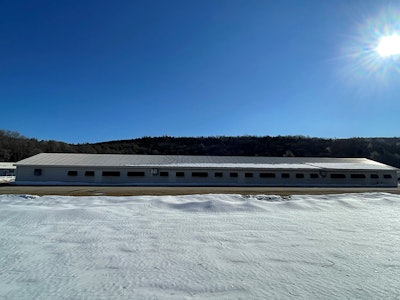
Hubbard will spend $20 million to expand and upgrade its Walpole, New Hampshire, Research and Development (R&D) operations focused on broiler breeder stock health and welfare.
“Hubbard started with the four Hubbard brothers in New Hampshire 100 years ago and now we are where we are today,” Mark Barnes, the General Manager of Hubbard LLC, said. “We are now a global breeding company supplying our birds all around the world.”
The expansion will allow for an increase in research capabilities and capacity and will focus on improvements in performance, biosecurity, technology and innovation.
New farms
The project includes the construction of several new R&D farms, including a state-of the-art feed conversion farm and the “Centennial Farm”, a new grow-out farm named in celebration of Hubbard’s 100-year anniversary.
“We plan on implementing some of the latest technologies in terms of feed conversion and meat yields,” explained Barnes.
The use of “life feed conversion” (LFCR) technology will focus on further optimizing the genetic traits to help the breeder birds and their offspring better convert feed into weight gain. In addition, the company will evaluate meat quality in the meat laboratory. Only the top performing pedigree families will be kept for the next generations to generate the breeding stock.
Renovations are also planned
An existing R&D grow-out farm, R&D hatchery and lay farm will be renovated to help the company strengthen its rigorous biosecurity program. As a part of the retrofit project, new incubation, hatchery, ventilation, lighting and equipment technology will be installed.
“At the breeder level, we are going to adopt a lot of the latest technologies and fully incorporate genomics into what we do. It’s also important to remember that we are an agricultural-based business. We need to actually handle birds individually, we need to keep good records of each birds and its family and we need to make sure we continue to select for economic and robustness traits and eliminate undesirable traits,” Barnes added.
Work on the project will begin immediately, with completion scheduled for mid-2022. The upgraded facility will employ 45 additional people.
Like what you just read? Sign up now for free to receive the Poultry Future Newsletter.

















